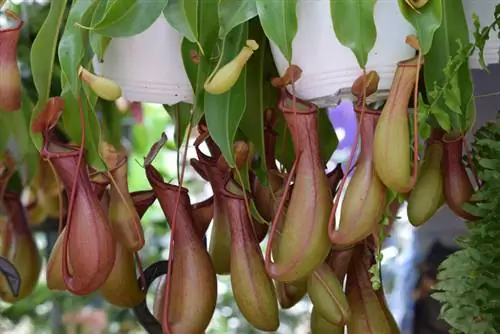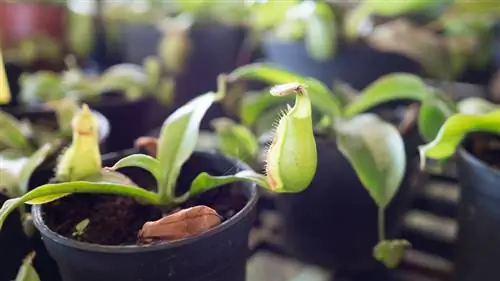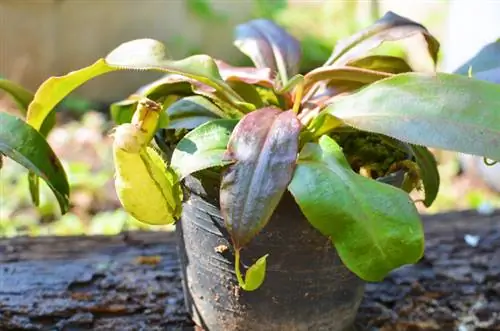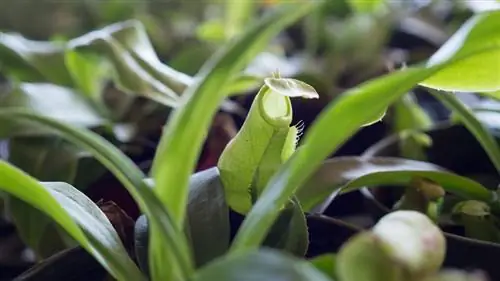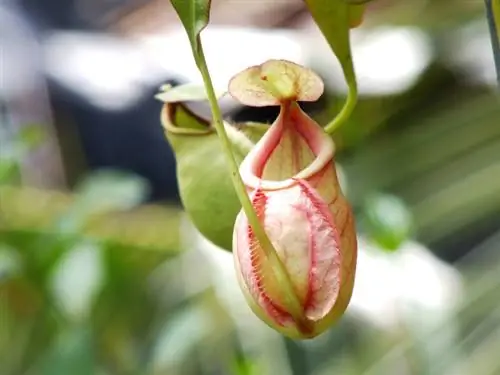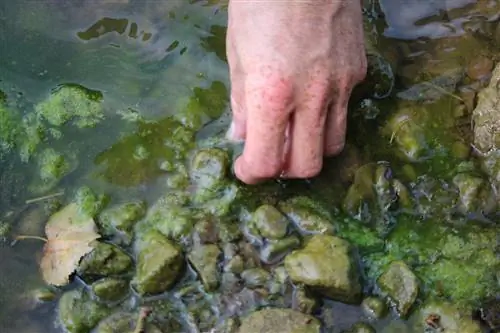- Author admin leonars@hobbygardeners.com.
- Public 2023-12-16 16:46.
- Last modified 2025-01-23 11:20.
The pitcher plant (Nepenthes) is a carnivorous plant. It is therefore often kept in the house as a natural insect control agent. However, you don't necessarily have to feed pitcher plants. If there are no insects present, the plant supplies itself through substrate and leaves.
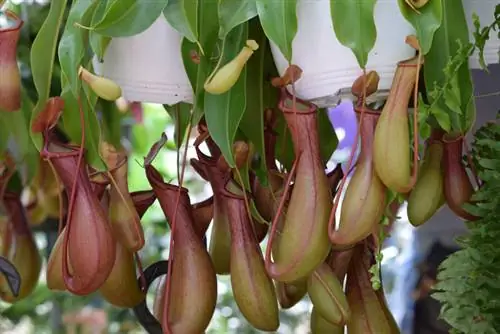
Do you need to feed pitcher plants?
Feeding pitcher plants is not absolutely necessary as they can also absorb their nutrients through leaves and substrate. If desired, live insects (maximum one or two) can be added to the pitchers, provided digestive secretions are present. Overfertilization should be avoided.
Feed pitcher plants when insects are missing?
In the wild, the Nepenthes has enough insects available to ensure its supply of nutrients. The prey is lured into the eye-catching pitchers by scents and remains trapped there. It is digested by the digestive fluid that forms in the pot.
If pitcher plants are grown in the apartment, there is often a lack of sufficient insects, especially if the household is very careful about cleanliness and the windows are covered with fly screens.
Feeding pitcher plants with meat
Of course you can put the mosquitoes or flies you have killed in the cans, but this is not absolutely necessary. Like all plants, the pitcher plant gets its nutrients from its leaves. Seen this way, insects are just an additional treat.
If possible, feed living insects. You should never feed more than one or two specimens at a time. The insects must be able to swim in the digestive juice.
Please note that there must be liquid in the jugs. This is not water, but rather the digestive secretion. If this was accidentally released, the pitcher plant cannot digest insects. The pitchers then die quickly.
How to fertilize the pitcher plant
Pitcher plants need fewer nutrients than most gardeners think. They are pulled from the plant substrate or absorbed through the air. Fertilizing is therefore generally not necessary if you repot the Nepenthes regularly.
If you don't want to do without fertilizer completely, you have to be economical, because too many nutrients are not good for the Nepenthes.
Orchid fertilizer (€7.00 on Amazon) is suitable as a fertilizer for Nepenthes. Some gardeners swear by slow-release fertilizer that is added to the cans in pearl form. However, this form of fertilization is controversial among experts.
Tip
If you choose to feed your pitcher plant trapped insects, remember that the digestive process may produce unpleasant odors. In the worst case, the smell around the Nepenthes is like an uncleaned toilet.

